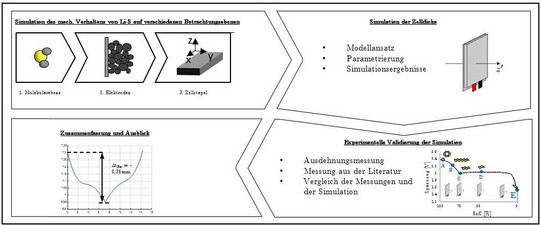Challenge of future battery technology in the automotive sector: mechanical modeling of the lithium-sulfur battery
Summary / Abstract
Globally rising emissions are considered one of the main reasons for the climate change we face today. In this context, the electrification of vehicles represents an important contribution to fulfil these targets. The key component of the powertrain is the battery system. Lithium ion batteries are the first choice today but are limited in their specific energy density. A promising next generation of lithium-ion batteries is the lithium-sulfur battery. This technology shows high potential in terms of theoretically high specific energy density, safety and lower material costs. However, there are still challenges in the commercialization and condition monitoring of this battery. Conventional methods, such as state-ofcharge prediction using open-circuit voltage, as well as coulomb counting, are ineffective for the lithium-sulfur battery. Due to the continuous volume change during battery operation, this could be a possible approach to monitor and predict the condition of the battery.

![[Translate to English:] [Translate to English:]](/storages/rst-etit/_processed_/4/d/csm_Autotag_3385_4291f8904f.jpg)
